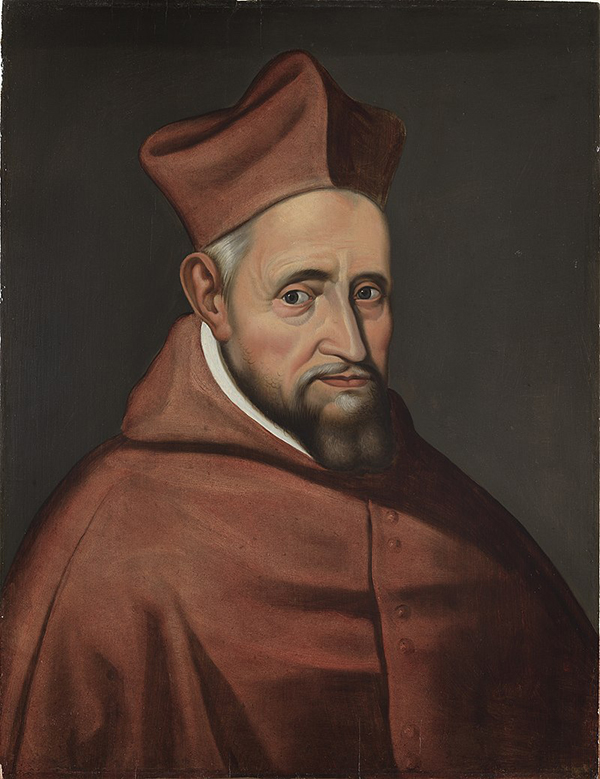
September saint: St. Robert Bellarmine
St. Robert Bellarmine must have been doing something right. Although one of the most brilliant and lauded Roman Catholic theologians of his day, whose opinion was sought by many, he nonetheless managed to kindle the ire of kings and popes alike. The process for his canonization was begun in 1627; however, politics intervened, and it wasn’t until 1930 that he was finally declared a saint by Pope Pius XI. The following year he was also declared a Doctor of the Church.
Robert Bellarmine was born in the Tuscan town of Montepulciano in 1542 and was the third of 10 children whose mother, Cinzia Cervini, was a niece of Pope Marcellus II. Raised during the time of the Reformation in a household dedicated to Catholic piety, it came as no surprise that he became an outstanding scholar of both Church history and scripture. Educated by the Jesuits, whose order had received papal approval a mere two years before he was born, Bellarmine began to write. His work was characterized by a spirit of moderation and rationality in an age otherwise embroiled in bitter controversy.
Although his father had hoped he would use his intellectual gifts to benefit the family’s fortunes, it was his mother’s wishes that prevailed. Bellarmine joined the Jesuit Order in 1560 and pursued studies in philosophy and theology. At the end of his training, his focus turned to an emphasis on refuting what he saw as the errors of Protestantism. Ordained in Belgium in 1570, he became the first Jesuit to teach there at the University of Louvain. In 1576, at the invitation of Pope Gregory XIII, he began to teach polemical theology at the new Roman College (later the Gregorian University).
Over the next 11 years, he would hold several different positions in the Church, including being made a cardinal in 1599. But his most important achievement was a monumental work entitled “Disputations on the Controversies,” which was a three-volume defense of the Catholic faith. His writing was directly concerned with the political, religious and social issues of his time, and it was often these opinions that got him into trouble. He declared, for instance, that the theory of the Divine Right of Kings was essentially indefensible, and he admonished his friend, Galileo, not to put forward his theory that the Earth revolved around the sun, known today as the Copernican theory. Even saints can make mistakes.
Despite his elevated positions in the Church, he himself remained a very austere individual. Though he occupied apartments in the Vatican, he died essentially penniless, having given almost all of his money to the poor. In one situation, he pulled down the beautiful hangings in his room to clothe the needy, remarking that “the walls won’t catch cold.” At another time, he ransomed a soldier who had deserted from the army. Although frugal with his own life, he always cared for other’s needs.
He died in 1621. The patron of catechists, his feast day is celebrated on Sept. 17.
Sources for this article include:
catholic.org/saints/saint.php?saint_id=101
catholicnewsagency.com/saint/st-robert-bellarmine-366
franciscanmedia.org/saint-of-the-day/saint-robert-bellarmine/
ignatianspirituality.com/ignatian-voices/16th-and-17th-century-ignatian-voices/st-robert-bellarmine-sj/
Schreck, Alan. “Catholic Church History from A to Z.” Michigan: Servant Publications, 2002.

